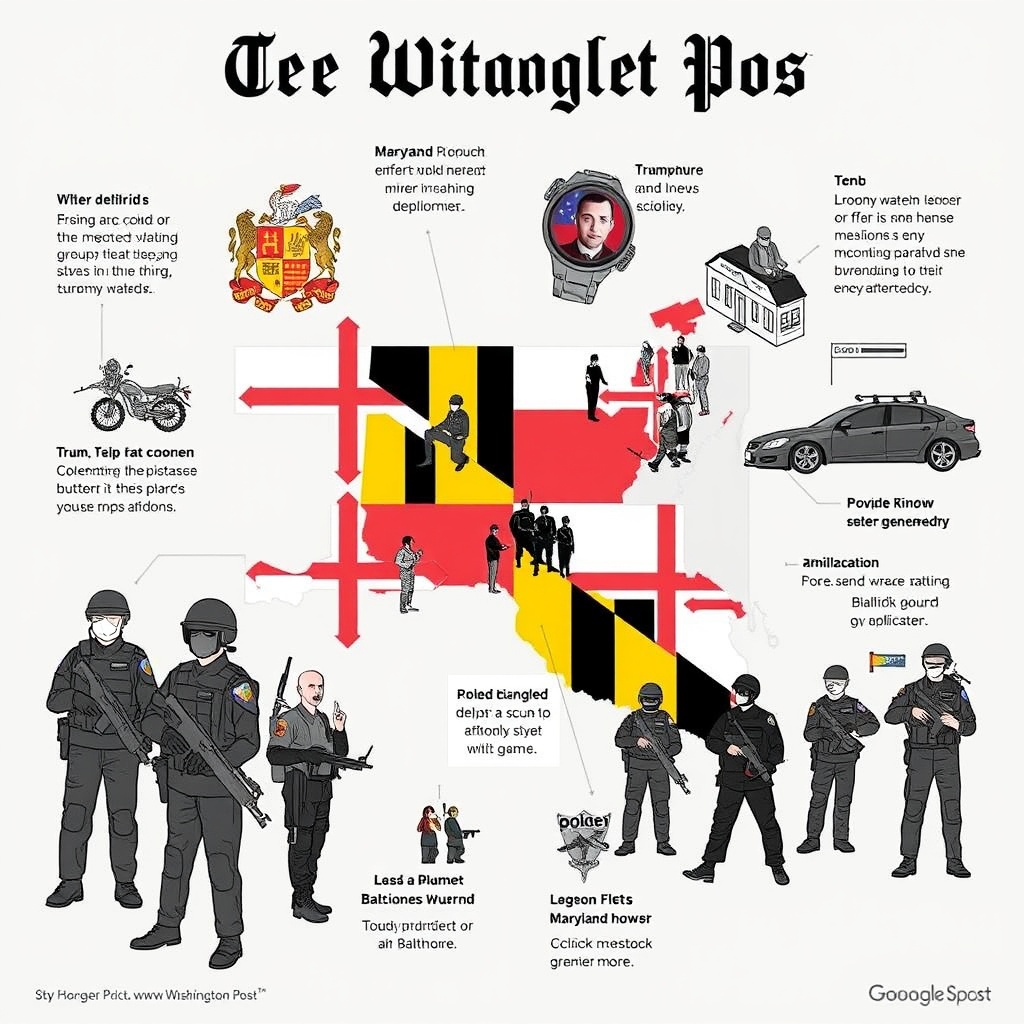Introduction
The city of Baltimore, Maryland, is on high alert as the state deploys additional law enforcement personnel to the area amid threats from the White House to send in National Guard troops. The move comes as a response to President Trump's assertions that the city is plagued by crime and requires federal intervention. Governor Wes Moore and Baltimore Mayor Brandon Scott have taken proactive steps to address the situation, increasing the presence of local law enforcement in an effort to maintain order and prevent potential escalation. This article will delve into the details of the situation, examining the reasons behind the deployment of law enforcement, the potential consequences of National Guard intervention, and the impact on the community.
Background and Context
Baltimore, like many other major cities in the United States, faces challenges related to crime, poverty, and social inequality. The city has struggled with high rates of violent crime, including homicides and shootings, which have garnered national attention. President Trump has been vocal about his perception of Baltimore as a city in crisis, often using it as an example of what he sees as failed Democratic governance. His threats to send in National Guard troops have been met with resistance from local leaders, who argue that such a move would be unnecessary and potentially harmful.
According to data from the FBI, Baltimore reported 335 homicides in 2022, a rate of approximately 51.5 per 100,000 residents. While these numbers are indeed troubling, they do not tell the full story of the city's complex social and economic issues. Many community leaders and residents argue that the root causes of crime, such as poverty, lack of access to education and job opportunities, and systemic racism, must be addressed through comprehensive and sustainable solutions rather than temporary or punitive measures.
Law Enforcement Deployment and Community Response
In response to the President's threats, Governor Moore and Mayor Scott have opted to increase the presence of local law enforcement in Baltimore. This move is intended to demonstrate the state's commitment to maintaining public safety while also asserting its autonomy in addressing local issues. The deployment of additional law enforcement personnel is seen as a proactive measure to prevent potential unrest and to reassure residents that their safety is a top priority.
However, not all residents are convinced that this approach is the best solution. Some community leaders have expressed concerns that an increased police presence could lead to further militarization of the city, potentially exacerbating existing tensions between law enforcement and the community. Others have called for more holistic approaches to addressing crime, including investments in social programs, education, and economic development.
"It's not just about sending in more police," said a local community organizer. "We need to address the root causes of crime, like poverty and lack of opportunities. We need jobs, education, and social services that can help our young people and families thrive."
Potential Consequences of National Guard Deployment
The potential deployment of National Guard troops to Baltimore raises significant concerns among residents, community leaders, and legal experts. The use of military personnel for domestic law enforcement purposes is governed by the Posse Comitatus Act, which generally prohibits the use of federal troops for such purposes unless specifically authorized by Congress or the Constitution.
Beyond the legal implications, the deployment of National Guard troops could have profound social and psychological impacts on the community. The presence of armed military personnel could be perceived as an occupation, leading to increased tensions and potentially violent confrontations. Moreover, such a move could undermine trust in local law enforcement and exacerbate existing social and economic inequalities.
A study by the National Institute of Justice found that the use of military-style policing tactics can lead to increased aggression and decreased cooperation from the public. Furthermore, the deployment of National Guard troops could divert resources away from community-based initiatives and social services, which are critical for addressing the underlying causes of crime and violence.
Conclusion
The situation in Baltimore, with the state deploying more law enforcement to the city amid threats from the White House to send in National Guard troops, is complex and multifaceted. While the immediate goal of maintaining public safety is paramount, it is equally important to address the root causes of crime and social inequality through sustainable, community-driven solutions. The use of military personnel for domestic law enforcement purposes raises significant legal, social, and ethical concerns and should be approached with caution and careful consideration.
As the city moves forward, it is crucial for local, state, and federal leaders to work together to develop comprehensive and inclusive strategies for addressing crime, promoting social justice, and enhancing community well-being. This includes investing in education, job training, and social services, as well as fostering trust and cooperation between law enforcement and the communities they serve. By prioritizing these efforts, Baltimore can work towards a safer, more equitable future for all its residents.


Leave a comment